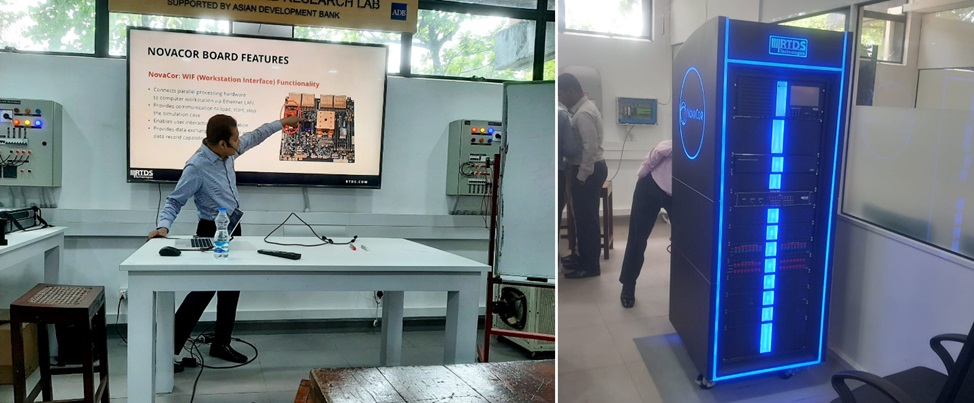Real Time Digital Simulation (RTDS) is an advanced technology that performs real time simulations in power systems. This allows interfacing the simulation output with external hardware such as protective relays, phasor measurement units, etc., and performing hardware-in-the-loop simulations. Many top ranked universities are using the facility to train power engineering students on real time simulations. On the other hand, utilities can also use this to see the power system behavior in near real time as well. The Department of Electrical Engineering was fortunate to receive a Real Time Digital Simulator becoming the first ever engineering faculty in the country to receive such facility. The said facility is used for undergraduate and postgraduate academic and research activities, training of industry people and also national level studies using reduced order models within the capacity of the simulator. The department is thankful to Asian Development Bank and Lanka Electricity Company for securing funding to purchase the simulator.
Part of the existing power systems laboratory in the department was also renovated as a “Simulation Area” dedicated for power system simulation studies. The department is grateful to all alumina who contributed to renovate this simulation area including partitioning, tiling, painting, etc. The alumina living in Australia donated six brand new high capacity computers to this new laboratory. These computers are dedicated to different domains of power systems simulations including electromechanical and electromagnetic transient analysis using already available licensed versions of commercially available power system simulation software such as PSSE, PSCAD/ EMTDC, PowerWorld. Therefore, the Department of Electrical Engineering is now rich with its facilities on all domains of power system simulations, which will be used in academic and research activities at both undergraduate and postgraduate levels. We are thankful to all who supported us in different ways to get these modern facilities to the department.

